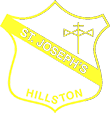Participation and involvement in sport is encouraged in all our schools. It is expected that in striving for the good of the team, students will give their best and work with their teammates to achieve goals.
The sports offered at different locations vary. These include netball, hockey, basketball, touch football, dance, cross country running, swimming, tennis, athletics, squash, rugby, cricket, football, volleyball and soccer.
Every student in Years 3 – 6 has the opportunity to attend Diocesan sports days. These provide the opportunity for games to be played against students from other schools.
Qualified coaches from a variety of sports visit the schools regularly and qualified local residents are very active in developing the sporting interest and prowess of our students.
The growth and development of individuals are fostered by providing pathways to representative selection. Indeed, many of our students have gone on to achieve Cluster, Diocesan, Polding, State Catholic Schools, State Public Schools and national levels.
STUDENT REPRESENTATIVE PATHWAYS
- School-based carnivals/trials
- Cluster carnivals swimming/athletics
- Diocesan carnivals/trials
- NSWCPS – Polding carnivals/trials
- NSW PSSA carnival/trials
- Australian National Championships
WILCANNIA-FORBES TRIALS
- Cross Country – 8 to 13 years. First 6 students
- Athletics – Cluster and Diocesan 8 – 13 years. First 3 students
- Swimming – Cluster and Diocesan 8 – 13 years. First 3 students
- Diving No trial 8 – 13 years
- Summer – Tennis x 4, cricket x 7, softball, basketball. Year 5/6
- Touch x 12. Year 5/6
- Winter – 11 and open league x 15, netball x 8, soccer x 12, hockey x 12. Year 5/6
- AFL Year 5/6. MacKillop development day/player profile.
- Rugby union x 20 (11 and 12-year-olds)
- Golf no WF trial. Nominations and handicap to attend CPS golf day at Bathurst 18 holes. Gala event for 9 holes.
NON-PATHWAY SPORTS
Participation is school-based
David Peachey, Russell Richardson, netball gala days, rugby 7s, rugby 10s, NSW touch gala days, OzTag gala days, NRL, rugby, netball, touch and AFL development days.
Horse sports are now covered by WHS.
WILCANNIA-FORBES DOES SUPPORT NON-PATHWAY NSWPSSA SPORT
- NSWCPS Rugby 10-a-side knockout – Each NSW Diocese selects one team to represent the Diocese. Wilcannia-Forbes hosts a gala day held during week one of term three. The Diocesan champion team progresses to the Finals Day held at St Joseph’s Hunters Hill in August.
- CPS Hockey Challenge
- CPS Netball
- CPS Basketball challenge
MULTI-CLASS
Representative sports opportunities for children with additional needs
The School Sports Representative pathway promotes opportunities for eligible students with a disability between 8 and 13 years of age to compete in selected events in swimming, cross country and athletics.
Students may be able to participate in one or more events as a representative of their school if the student is able to:
- Swim 50m proficiently in one or more of the 4 strokes – freestyle, breaststroke, backstroke and butterfly.
- Proficiently compete in Track and Field – 100m, 200m, 800m, shot put, discus and long jump.
- Complete a 2 km cross-country course within the specified qualifying time.
All students with a disability wishing to compete at Polding are required to be formally qualified.
Classification students need to attend classification days.
Physical
Functional classifications involve a series of physical assessments to determine the extent of the limitation. It may include amputees, cerebral palsy etc
Vision
Students with a visual acuity that is less than or equal to LogMAR = 1.00 (6/60) and/or the visual field is less than a diameter of 40 degrees. Eye conditions may include albinism, retinitis pigmentosa, macular dystrophy and rod-cone dystrophy.
Intellectual
Students with an IQ equal to or less than 75 as assessed by a professionally administered IQ test, and significant limitations in adaptive behaviour (conceptual, social or practical adaptive skills).
Hearing
Students with hearing level loss of at least 55 decibels (dB) over 3 frequencies at 500, 1000 and 2000 Hertz (Hz) in the better ear as assessed by an audiologist or audiometrist.
Transplant
Students who have had an organ or bone marrow transplant.
